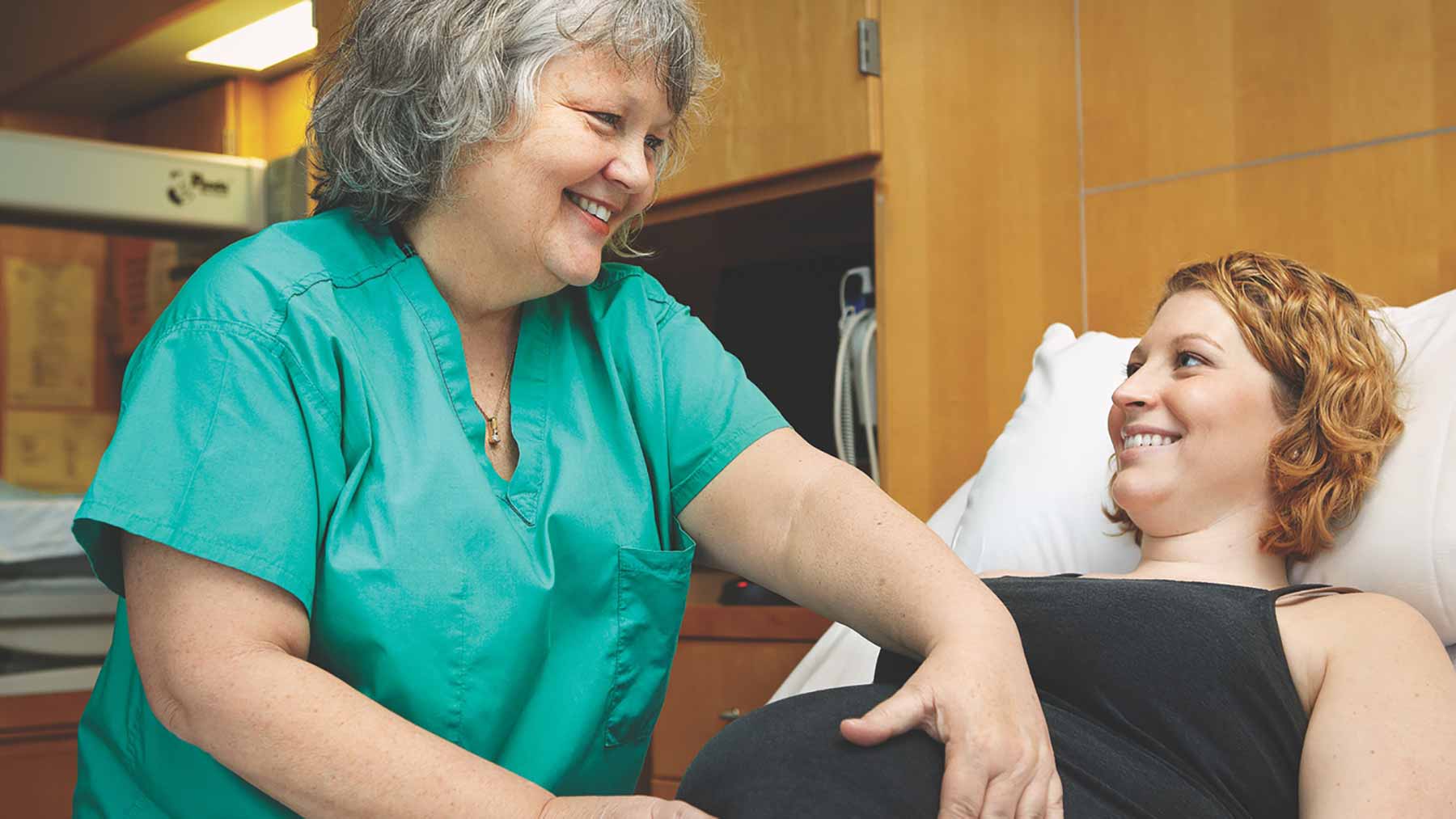The facts about midwives: Find out if one is right for you

There are many common misconceptions about what midwives do and whether or not women should consider midwifery care over typical Ob/Gyn care. There are many benefits to working with midwives, including access to more holistic and personalized care.
What midwives do
Midwives offer a wide range of services:
- Perform annual well-woman exams, including Pap smears (throughout your life, not just during childbearing years)
- Help identify the best method of contraception for you (including ability to prescribe birth control)
- Provide pregnancy care and delivery (including ongoing postpartum care of new moms to address post-partum and breastfeeding concerns)
- Treat common infections and prescribe medications
Who is a good candidate?
Midwives provide care for women having uncomplicated pregnancies and collaborate with physicians when a woman experiences complications or needs additional care. They provide care for women who are advanced maternal age, have a history of a previous cesarean and women with some medical conditions such as thyroid disorder.
Midwife means “with woman,” and this is the cornerstone of midwifery care. There is a focus on prevention of disease and overall wellness.
“We focus on developing a trusting relationship with women and empower them to make educated decisions about their care,” MacLeod says. “During labor and delivery, we are very hands-on and assist women with labor support.”
As part of the Ohio State team, there is always an Ob/Gyn on the Labor and Delivery unit and available for more specialized treatment.
The straight facts
- Many women think that utilizing a midwife means you must have a home birth. This is not true. Ohio State’s midwifery team only delivers babies at the Ohio State Maternity Center. This ensures the mother and baby have quick access in the event a complication arises during delivery.
- While midwives do tend to take a more holistic approach to pregnancy and delivery, you can still have an epidural and other medication to help with pain management. All of Ohio State’s midwives are nurses with advanced training and master’s degrees.
- With midwifery care, you can personalize your baby’s delivery. At your 36-week visit, you and your midwife will outline your care plan and finalize your birthing preferences. This can include general preferences, such as who to call and pain management goals. It can also include more specific details per your preferences, like water birth and hydrotherapy, unconventional labor positions and delayed cord clamping. “The birthing plan helps alleviate some of the anxiety of the ‘unknown’ that comes with having a baby, because your wishes have been expressed ahead of time,” MacLeod says.
- Midwifery care (including office visits, ultrasounds, prenatal care and delivery) is covered by insurance in the same way that physician care is.
Keeping it simple
You can schedule an appointment directly with a midwife – there is no need for a referral. And you can continue to see a midwife all of your life for annual well-woman exams and help managing premenopausal and postmenopausal concerns.
Interesting fact: Only midwives offer water births at Ohio State, and Ohio State is the only practice in Franklin County that offers water birth.

